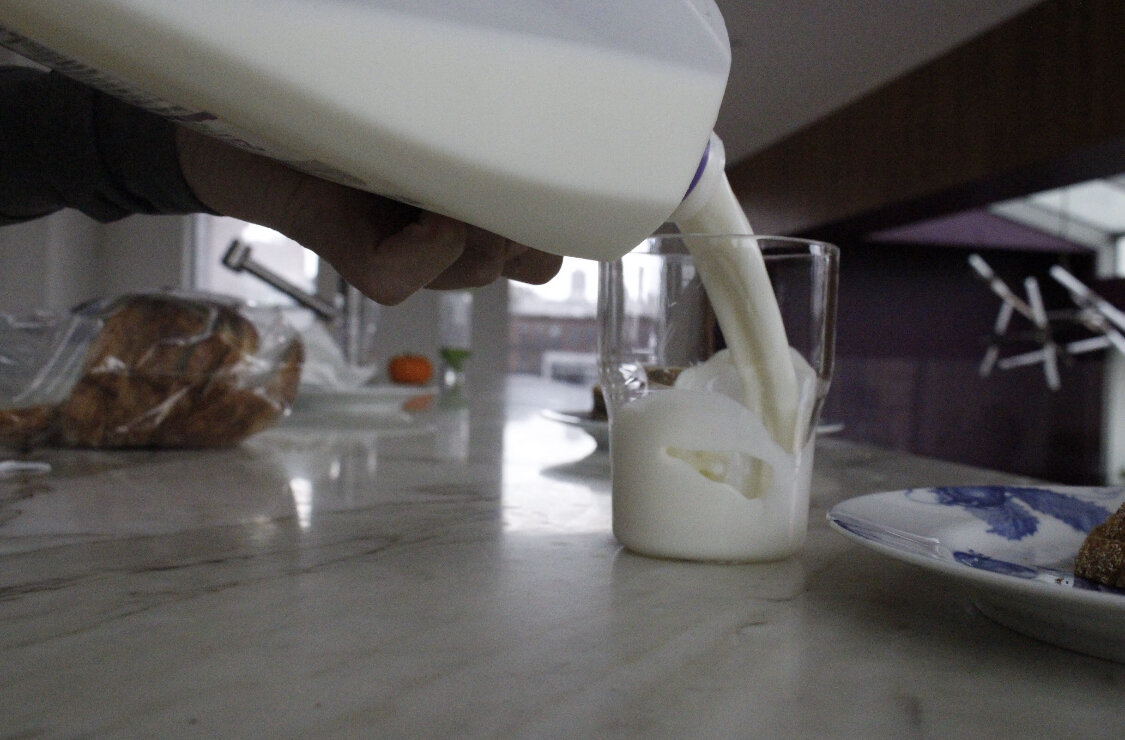Should I Be Using Protein Powder?
Photo taken by author
The words “protein powder” conjures up images of impossibly muscular people (often men), sweating profusely and possibly emitting a primal cry after achieving an especially goal-shattering rep. They then reach for their shake which only has three raw eggs, water, and three scoops of protein powder. They are the picture of intensity, fitness, and masculinity. This stereotype of protein powder, propagated by the brands themselves, ultimately harms and diminishes the product as it declares that just one, small (but large) demographic of people can and should be making use of this product daily. In reality, athletes and others of varying degrees of activity levels and diets may benefit from including protein powder as part of a balanced diet.
What is protein powder?
Protein powder is a dietary supplement that come from plants (soybeans, peas, rice, potatoes, or hemp), eggs, or milk (casein or whey protein). Whey is the most popular as it is a water-soluble milk protein and contains all five amino acids, also known as a “complete protein.” Whey protein also has a sweeter, more pleasurable taste as opposed to soy protein which most vegans opt for. The powders may include other ingredients such as added sugars, artificial flavoring, thickeners, vitamins, and minerals. The amount of protein per scoop can vary from 10 to 30 grams.
Carole Conn, PhD, associate professor of nutrition at the University of New Mexico says, “They’re an easy and convenient source of complete, high-quality protein.” But she cautions that most of us can get all the nutrition we need eating by eating sources of lean protein (meat, fish, chicken, and various dairy products).
Who should be using it?
When you’re an athletic teenager. Your body uses protein not only to build back muscle and fuel your workouts, but also to fuel your body’s growth.
When you’re switching up your workout regime. If you’re just starting to workout or amping up your current workouts, to see results one component of this would be to consume protein powder.
When you’re recovering from an injury. Your body needs more protein to heal!
If you’re transitioning into being a vegan or a vegetarian. Because you eliminate many sources of protein from your diet, adding some vegan protein powder into a smoothie every morning is an easy way to replace what you have taken out.
Some signs of low protein intake include fatigue, you feel weak when participating in strenuous activity, or you are recovering from injuries slowly.
Why might I not need to use it?
It doesn’t take much to fulfill your required daily intake of protein. Most Americans already eat about 15% of their daily calories in protein. To build a pound of muscle, the body needs 10-14 grams per day. Some protein powders pack a whopping 30 grams of protein into a single serving. This level of excess could lead to kidney and liver problems.
Realize that protein, contrary to what the media wants us to believe, is not nearly as important as carbohydrates when recovering from a workout. “They’re what your body uses for fuel, and what your muscles run on,” says Dr. Barbra Lewin, a dietitian and sports nutritionist who has worked with NFL, NBA, and NHL athletes and trained Ironman competitors. “Yes, protein is also important for recovery after a workout, but research shows that at that point, the body needs fuel with a 4-1 or 5-1 ratio of carbs to protein.”
Another risk concerning protein powder is that the FDA leaves it up to manufacturers to determine the safety of their merchandise and how to label their products. In other words, there's no way to know if a protein powder contains what manufacturers claim. There also hasn’t been extensive studies completed on the long-term effects of consuming protein powder. Protein powder may also cause digestive distress to those who are lactose intolerant as whey protein is milk-based). Finally, select protein powders are extraordinarily high in sugars and calories. Some protein powders have little added sugar, and others have as much as 23 grams per scoop. This is troubling since The American Heart Association recommends a limit of 24 grams of added sugar per day for women and 36 grams for men. Some protein powders turn a glass of milk into a drink with more than 1,200 calories. This risks weight gain and an unhealthy spike in blood sugar.
We don’t all need to be Arnold Schwarzenegger to start implementing protein powder into our everyday lives, but be sure to consider the risks and consult a doctor or nutritionist before making any drastic changes to your diet.
Sources:
https://www.webmd.com/vitamins-and-supplements/features/protein-powder#1
https://www.health.harvard.edu/staying-healthy/the-hidden-dangers-of-protein-powders
https://www.healthline.com/nutrition/best-protein-powder#TOC_TITLE_HDR_2
https://www.health.harvard.edu/blog/the-scoop-on-protein-powder-2020030918986
